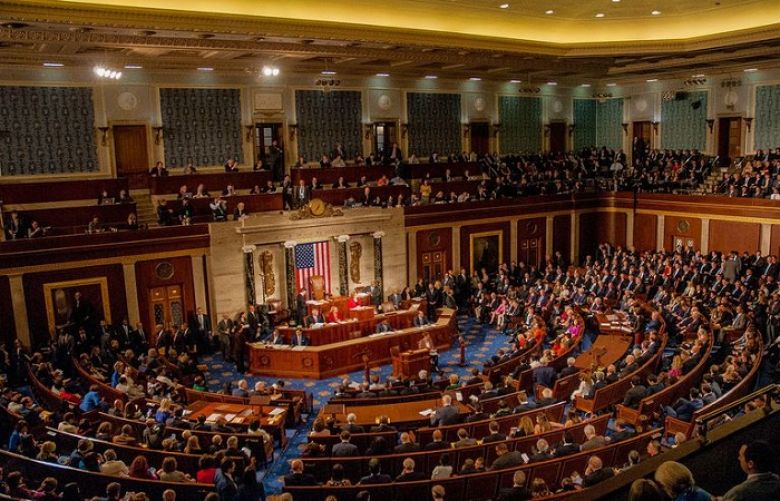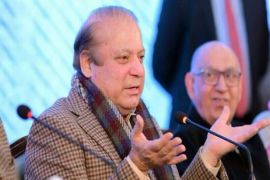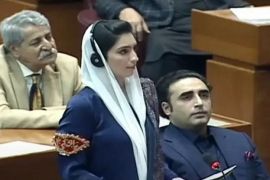The US State Department has informed Congress that the Trump administration’s decision to suspend its security assistance to Pakistan has so far failed to achieve its objective: forcing Islamabad to change its policies.
Pakistan dominated part of Tuesday’s hearing at the Senate Foreign Relations Committee on the administration’s new South Asia strategy, as both US officials and lawmakers acknowledged that Islamabad had a key role in bringing peace to Afghanistan.
The committee’s Republican chairman, Senator Robert Corker, brought Pakistan into the discussion in his opening remarks, praising the Trump administration’s Jan 4 decision to suspend US security aid to Pakistan.
“This administration has also rightly drawn a clear line with Pakistan, suspending security assistance of over a billion as long as Islamabad continues to shelter Haqqani, and other terror groups that target innocent civilians, as well as US and allied forces,” he said.
But Senator Ben Cardin, the committee’s senior Democrat, wanted to know if the decision had brought “any change” in Pakistan’s behaviour.
Official says security assistance can be restored if Islamabad takes ‘decisive and sustained’ action against terrorist groups
“There certainly hasn’t been any change that we would consider final and irrevocable,” said Deputy Secretary of State John Sullivan, one of the two senior US officials who represented the administration at the hearing. “They have engaged in discussions with us, but there hasn’t been a sufficient amount of action yet such that we would be lifting that suspension of security assistance.”
Asked if the Pakistanis knew what the US expected from them, Mr Sullivan said: “They understand what we expect, our suspension of security assistance continues until we see more evidence that they are in fact taking action”.
Randall G. Schriver Assistant Secretary, Asian and Pacific Security Affairs, US Department of Defence, however, told the committee that Washington believes Pakistan was not just an important partner but “they’re absolutely key to our strategy succeeding”.
He said that during a recent visit to Islamabad, US Secretary of Defence James Mattis made clear Washington’s “interest in continuing to partner with them,” but he also “made clear that we must see a change in Pakistan’s behaviour in particular areas where we have great concerns”.
Earlier at the hearing, Mr Sullivan also read out a written statement, stating that the US could resume security assistance to Pakistan if Islamabad takes “decisive and sustained” actions against all terrorist groups in the country.
But the statement also added new conditions for rebuilding US ties with Pakistan, which may not be acceptable to Islamabad, such as seeking more restraint in Pakistan’s military nuclear and missile programmes and closer alignment of the country’s non-proliferation policies with those of the US.
“We also encourage restraint in Pakistan’s military nuclear and missile programmes, and seek continued, closer alignment of Pakistan’s non-proliferation policies with our own,” he said.
Mr Sullivan explained that the strategy that President Donald Trump announced in August last year was a conditions-based approach instead of one predicated on arbitrary timelines.
The new approach marks a change from the status quo in US-Pakistan relations by holding Pakistan accountable for its failure to deny alleged sanctuary to militant proxies, he added.
Mr Sullivan also said that the US was committed to doing its part to reduce tensions in the region in ways that addressed Pakistan’s legitimate concerns.
“To be clear, we oppose the use of terrorist proxies by any country against another country, anywhere in the world. The use of terrorism has no place in a rules-based international system,” he said.
This is an indirect reference to complaints from both Kabul and Islamabad about the existence of terrorist sanctuaries on each other’s territories.
Pakistan has submitted evidence to both US and Afghan officials to support its claim that TTP and other terrorist groups have moved to Afghanistan and use their sanctuaries there for carrying out attacks inside Pakistan.
But the State Department does not address Islamabad’s other complaint that India’s increasing influence in Afghanistan also threatens its security as India has contacts with Afghanistan-based terrorist groups and encourages them to carry out attacks inside Pakistan.







